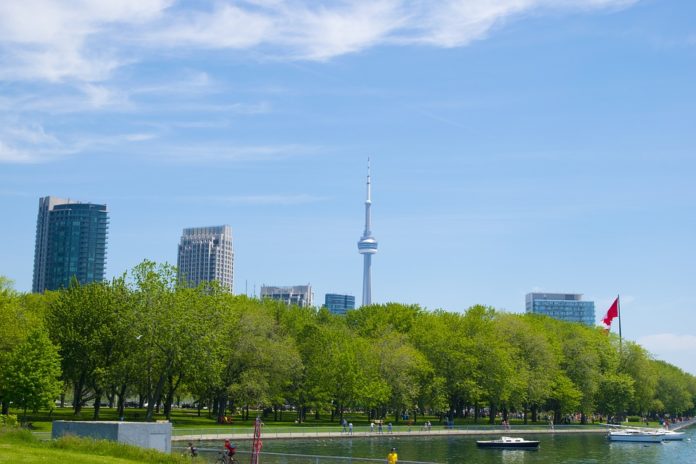When living in a city, the indoors can become a refuge from the stressful hustle and bustle, especially for mid-aged and older adults. However, according to a recent Canadian study, less exposure to greenspace can negatively affect these adult populations’ mental health. The study included more than 26,000 Canadian adults between the ages of 45 to 86 from 11 different urban centers across the country.
The research was led by Susanna Abraham Cottagiri, a PhD candidate in epidemiology from Carleton University, and published in Environmental Research.
How are urban greenspaces and mental health related?
According to Statistics Canada, there was a large increase in perceived poor mental health among Canadians 50 and older between 2015 and 2020. Because of this, Cottagiri and colleagues’ main research goal was to analyze the potential positive impacts that proximity to greenspaces could have on the mental health of mid and older-aged city dwellers.
The authors predicted that closer proximity and higher frequency of interactions with urban greenspaces would be associated with improved mental health. To learn whether this was the case, they assessed the participants’ levels of depression, life satisfaction, and weekly neighbourhood through self-reported surveys. They also determined the participants’ proximity to urban greenspaces using their postal codes.
The authors found that living closer (at most a 15-minute walk) to urban greenspaces and having weekly interactions with residential environments (areas other than one’s home or yard) were associated with a positive increase in perceived mental health. This included less depression and higher levels of life satisfaction. Specifically, depression scores were lower for middle-aged and older adults who lived closer to urban greenspaces and for those who interacted with their neighbourhoods three or more times a week.
These findings are similar to previous results from Colin Ellard, an urban psychologist at the University of Waterloo, who reported that people of all ages who immersed themselves in urban natural greenspaces for short periods experienced psychological and physical health benefits.
The effect of income, urban greenspaces and depression
The authors also investigated differences across annual household incomes, exposure to greenness, and perceived mental health. They found that middle-aged and older adults who lived farther away from urban greenspaces had higher depression scores if they were from a household with a lower annual income compared to those with a higher annual income. On the other hand, participants from both high and low annual income households who lived closer to urban greenspaces demonstrated no difference in depression scores.
Overall, regardless of sex, age, race, or household income, closer proximity to urban greenspaces and regular use of neighbourhood environments had positive effects on perceived mental health in mid-aged and older adults living in Canadian cities.
As the authors suggest, increasing green infrastructure projects in urban cores may decrease the number of middle-aged and older Canadians with poor mental health.
An example of a green infrastructure project is greening an alleyway, which the city of Montreal has implemented across various neighbourhoods. Building more urban greenspaces like this will hopefully encourage middle-aged and older adults to leave their safe havens and partake in activities such as gardening in an alleyway close to home, exercising outdoors, or simply socializing with friends at a local park.
Not only are greenspaces beautiful to look at, but they also have many mental health benefits. With the weather getting nicer in Canada, it is a great time for city dwellers to immerse themselves in their residential environments and experience all the positive effects that Canadian urban greenspaces have to offer!








































